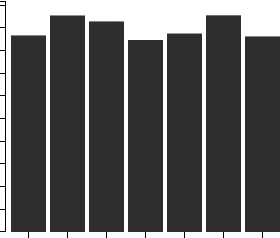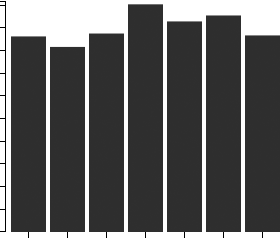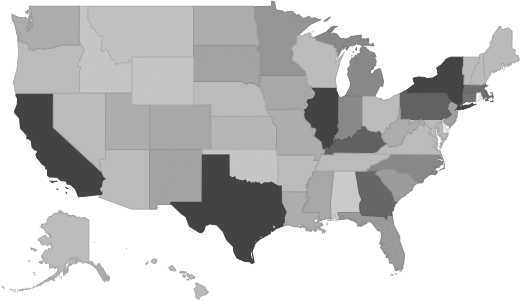Blood and Organ Banks - Market Size, Financial Statistics, Industry Trends
Industry Overview
This U.S. industry comprises establishments primarily engaged in collecting, storing, and distributing blood and blood products and storing and distributing body organs. Cross-References.Source: U.S. Census Bureau
Blood and Organ Banks Market Size
This report includes historical and forecasted market sizes and industry trends for Blood and Organ Banks. It reveals overall market dynamics from 2021 through the present, and predicts industry growth or shrinkage through 2031. Revenue data include both public and private companies in the Blood and Organ Banks industry.| Historical | Forecasted | ||||||||||
|---|---|---|---|---|---|---|---|---|---|---|---|
| 2021 | 2022 | 2023 | 2024 | 2025 | 2026 | 2027 | 2028 | 2029 | 2030 | 2031 | |
| Market Size (Total Revenue) | Included in Report |
||||||||||
| % Growth Rate | |||||||||||
| Number of Companies | |||||||||||
| Total Employees | |||||||||||
| Average Revenue per Company | |||||||||||
| Average Employees per Company | |||||||||||
Industry Revenue ($ Billions)

Industry Forecast ($ Billions)

Pell Research's advanced econometric models forecast five years of industry growth based on short- and long-term trend analysis. Market size statistics include revenue generated from all products and services sold within the Blood and Organ Banks industry.
Geographic Breakdown by U.S. State
Blood and Organ Banks market share by state pinpoints local opportunities based on regional revenue statistics. Growth rate for each state is affected by regional economic conditions. Data by state can be used to locate profitable and nonprofitable locations for Blood and Organ Banks companies in the United States.Industry Revenue by State

Distribution by Company Size
| Company Size | All Industries | Blood and Organ Banks |
|---|---|---|
| Small Business (< 5 Employees) | Included |
|
| Small Business (5 - 20) | ||
| Midsized Business (20 - 100) | ||
| Large Business (100 - 500) | ||
| Enterprise (> 500) | ||
Industry Income Statement (Average Financial Metrics)
Financial statement analysis determines averages for the following industry forces:- Cost of goods sold
- Compensation of officers
- Salaries and wages
- Employee benefit programs
- Rent paid
- Advertising and marketing budgets
The report includes a traditional income statement from an "average" Blood and Organ Banks company (both public and private companies are included).
| Industry Average | Percent of Sales | |
|---|---|---|
| Total Revenue | Included |
|
| Operating Revenue | ||
| Cost of Goods Sold (COGS) | ||
| Gross Profit | ||
| Operating Expenses | ||
| Operating Income | ||
| Non-Operating Income | ||
| Earnings Before Interest and Taxes (EBIT) | ||
| Interest Expense | ||
| Earnings Before Taxes | ||
| Income Tax | ||
| Net Profit | ||
Average Income Statement

Cost of Goods Sold
Salaries, Wages, and Benefits
Rent
Advertising
Depreciation and Amortization
Officer Compensation
Net Income
Financial Ratio Analysis
Financial ratios allow a company's performance to be compared against that of its peers.| Financial Ratio | Industry Average |
|---|---|
| Profitability Ratios | Included |
| Profit Margin | |
| ROE | |
| ROA | |
| Liquidity Ratios | |
| Current Ratio | |
| Quick Ratio | |
| Activity Ratios | |
| Average Collection Period | |
| Asset Turnover Ratio | |
| Receivables Turnover Ratio | |
| Inventory Conversion Ratio |
Products and Services Mix
Product lines and services in the Blood and Organ Banks industry accounting for the largest revenue sources.| Product Description | Description | Revenue ($ Millions) |
|---|---|---|
| Industry total | Included |
|
| Human blood services | ||
| Human red blood cell processing, storing, & distribution services | ||
| Human organ, bone, & tissue bank services | ||
| Human blood plasma collection, processing, & distribution services | ||
| All other human blood services | ||
| All other operating receipts | ||
| Resale of merchandise | ||
| Resale - prescription drugs | ||
| All other revenue | ||
Compensation and Salary Surveys
Salary information for employees working in the Blood and Organ Banks industry.| Title | Percent of Workforce | Bottom Quartile | Average (Median) Salary | Upper Quartile |
|---|---|---|---|---|
| Management Occupations | 7% |
Included |
||
| Chief Executives | 0% | |||
| General and Operations Managers | 2% | |||
| Business and Financial Operations Occupations | 6% | |||
| Healthcare Practitioners and Technical Occupations | 31% | |||
| Registered Nurses | 8% | |||
| Registered Nurses | 8% | |||
| Health Technologists and Technicians | 18% | |||
| Clinical Laboratory Technologists and Technicians | 10% | |||
| Healthcare Support Occupations | 21% | |||
| Other Healthcare Support Occupations | 20% | |||
| Miscellaneous Healthcare Support Occupations | 20% | |||
| Phlebotomists | 14% | |||
| Office and Administrative Support Occupations | 20% | |||
| Information and Record Clerks | 8% | |||
Government Contracts
The federal government spent an annual total of $86,262,752 on the Blood and Organ Banks industry. It has awarded 946 contracts to 105 companies, with an average value of $821,550 per company.Top Companies in Blood and Organ Banks and Adjacent Industries
| Company | Address | Revenue ($ Millions) |
|---|---|---|
Included |
||
